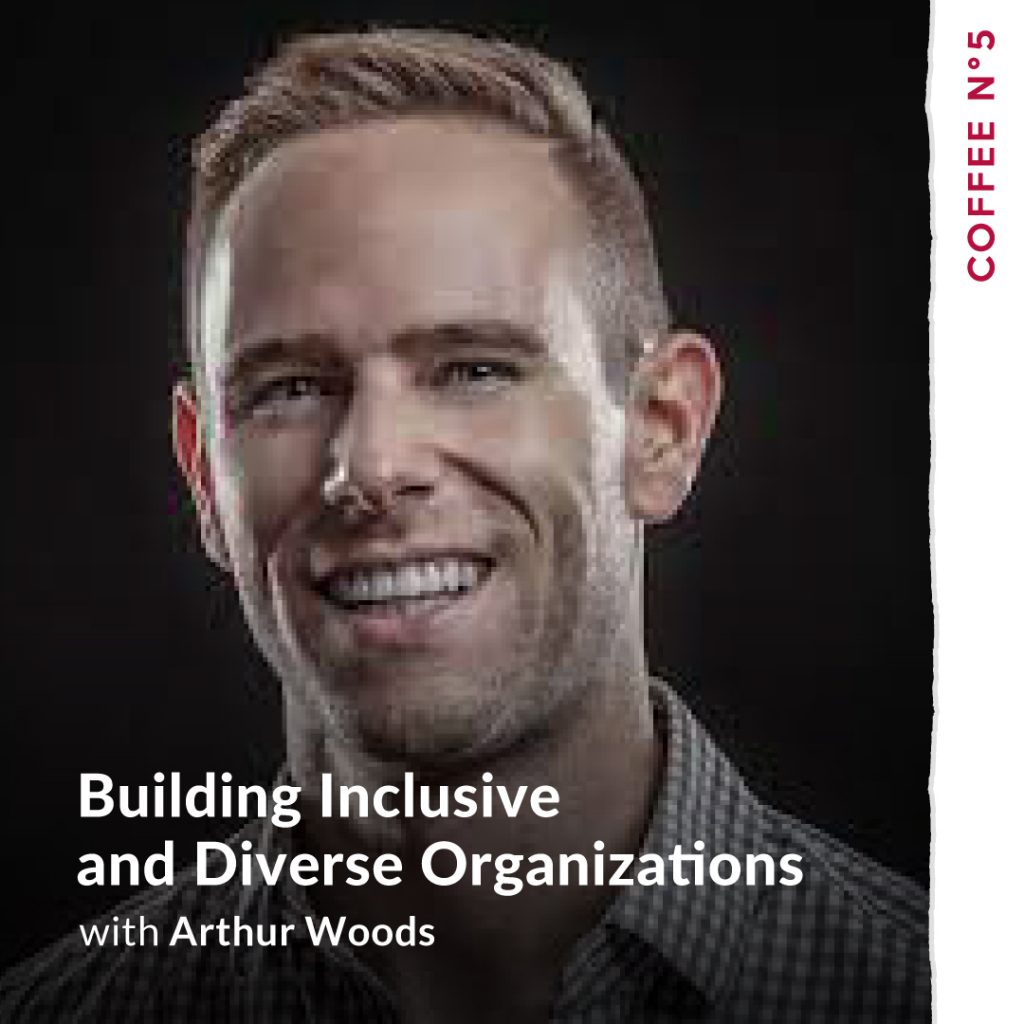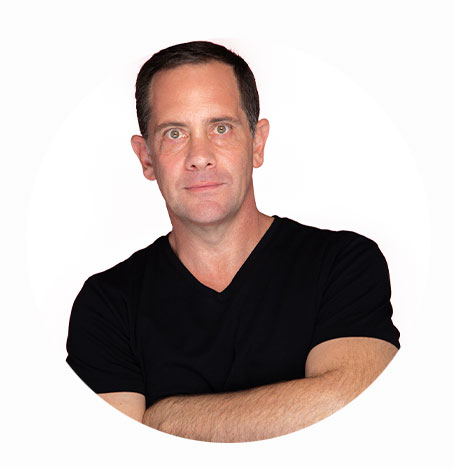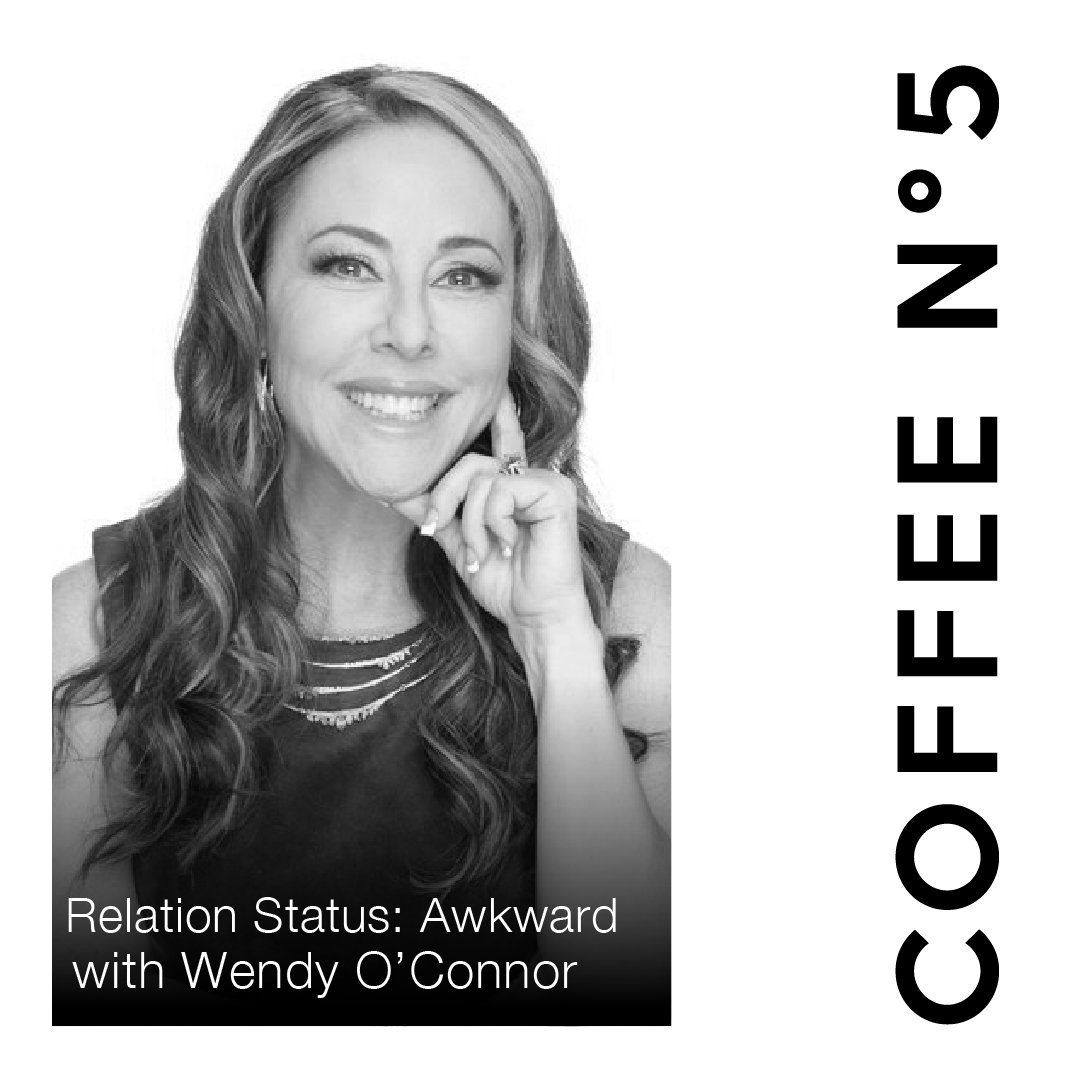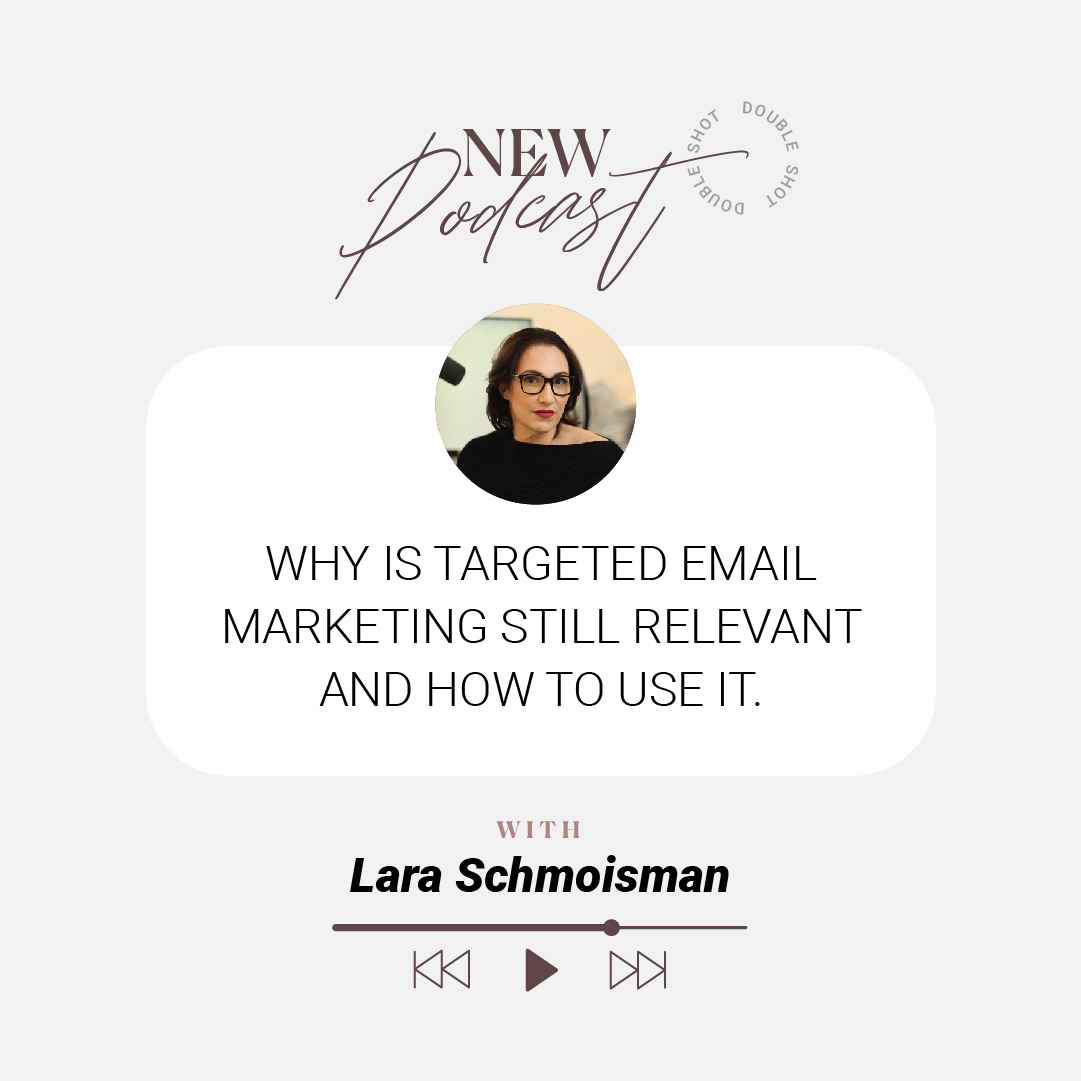Lara Schmoisman 0:05
This is Coffee N5. I’m your host, Lara Schmoisman. Hi, everyone. Welcome back to Coffee N5. Today I am actually sipping tea, because my throat wasn’t so good this morning. So you guys know me already, you know, I’m Latina, I’m Jewish, I came back from Argentina, when I was 24. And I came to this country and I did every job that I could get. At that point I was trying to break through in the entertainment industry, which is a tough industry. But I was working as a waitress, assistant, I was working also as an interpreter at some point, I did everything I had to do to pay the bills. Somehow I made it work, I gotta pay the bills and work in the entertainment industry, which I love for many, many years. But life changes and like I always say, you have to recycle yourself and you need to be working in what you can or what life takes you. And at some point, my life took me to a place where I needed a job. And I had to put a resume together, which I never had to do before. And I met with a recruiter who was willing to meet me. And she handed the resume back to me and she said, You know what, you better stay at home and stay with your kids because nobody’s gonna pay you even what you pay the babysitter. I felt terrible. I came back crying that day, I told my husband, 20 years of experience, and I’m nothing, I’m not worth anything. It was such an internal fight because I knew what I knew, there was no way to do all this experience that I bought over the years, not even stop working for a day. I even had babies and the next day I was working, and I sacrificed all that sacrifice for nothing. So when I was able to have my agency for me it was really, really important as a core value to have diversity and inclusion. You guys know that my theme is all over the world, that this is something that recently we were also nominated as a diversity and inclusion agency by the LA times, which is a big honour for me. And it really, really touched my heart because it means that we are doing what we were set to do. But today, I want to go a step further. So I invited Arthur Woods. Welcome to Coffee N5.
Arthur Woods 2:43
Thank you so much for having me. And what an inspiring story seriously
Lara Schmoisman 2:48
And no, I mean, I think you’re gonna have to tell us a lot, a lot more about your story, because you created you’re not only working in recruiting, helping the recruiting world to work in making this their teams more diverse, more inclusive, which for me is so important, because it gives you different points of view. We all come with our stories, not only our stories, what we bring from our families, whatever religion you are, whatever culture you are, you come with a different point of view because of it. And you’re part of the target audience as well, because you’re in the market?
Arthur Woods 3:26
Absolutely, absolutely. Well, I think, you know, the great thing is, we’ve all sort of realized this, this extraordinary Case for diversity. It’s not only good for society, you know, great for our teams and our cultures, but it’s how we innovate. It’s how amazing companies like yours have come to life and done, you’ve made such a great impact. And so we’re at this moment, now we’re just diversity makes sense, you know, for a leader who’s sensible, who’s thinking about kind of the future of their organization, the future of the world, it just makes complete sense that we have rich diversity. When we look around the room, we look around the table that we’re sitting at.
Lara Schmoisman 4:00
Yeah, well, I love that you use the word leader because, I don’t like the word, boss, I hate it. I will never be a boss, a woman, a boss girl, I’m just a person who has a position of leadership and being a leader also serves responsibility.
Arthur Woods 4:21
It really is. I mean, I love your point about you know, abandoning the kind of the term boss or manager, I just feel like it, you know, it establishes this kind of hierarchy that, you know, a great leader, as we know, kind of empowers their team. And I love this idea of the inverse pyramid, right? The leader sort of is there to support their team and help their team grow.
Lara Schmoisman 4:42
Exactly. I mean, as a leader, as owner of a company, I can only grow if I am able to mentor my team to grow with me. And I also think that has a lot to do with the retention of having your team. I mean, we’re talking right now there is a crisis of employment and I think that there is a lack of, I suppose, of someone saying that there is no lack of talent. And absolutely, I believe that there are a lot of people that are very talented, but a lot right now have work ethics?
Arthur Woods 5:15
Yes, I think we have an issue where there is a there is, you know, we have a record number of people changing jobs, we have a record number of open positions, we also have a real misunderstanding of talent, you know, and I think, as I’m sure you’ve seen many times over, you know, many leaders who walk into the room to hire and they, they think of kind of one profile one, one talent profile, one job seeker profile, as the only thing that they can hire, so they don’t look at someone through the lens of you know, this person has an unconventional background, because they didn’t, they weren’t groomed the same way they weren’t afforded all the same opportunities. If we continue to have this narrow view of what good talent looks like, we continue to pass a much more narrow net.
Lara Schmoisman 6:04
I was reading an article that said that employees are trying not to, they don’t want to have bosses. And I think that it’s somehow right. And being a boss is not the right thing to do to say you do this, you do that you need to have that input from your team. But at a certain time, I believe that it is through two side streets that the employee also needs to learn that for a reason. You’re a leader. Yes, I There are many cases where people are just they’re leaders because they inherited the company, or they have enough money to have a company. But there are many other cases where they need to give an opportunity to the leader to be a mentor and to learn.
Arthur Woods 6:50
Yeah, they do. And look, I understand this, this idea that, you know, a team member doesn’t want to have a boss, I think a team member doesn’t want to step into an organization where they feel like they’re a cog in a wheel, or they feel like they’re going to be micromanaged. And they’re just sort of, you know, a passenger in their own life, right? A really good leader, and a future leader in an organization, which is what a lot of, you know, of course, individuals see themselves as walk in and really believe that they, they want a place where they make an impact, where they’re empowered, or they’re going to grow, or they’re going to feel a strong sense of community. And I think that all sort of speaks to this idea that we have to find ways that we empower people, we give them some sense of autonomy, we help them see that there’s a pathway to there’s a pathway to growth. And, honestly, there’s a huge opportunity where we basically say, Look, we’re gonna let people come into our organizations, we’re going to give them a lot of support, but we’re also gonna give them a sense of agency. So no one and you know, this makes sense, right? It’s human beings, no one wants to feel like a passenger in their own career, right? No one wants to feel like they’re there. They’re giving up their livelihood, or their sense of purpose to go to work. We’re in a moment now where we hold our jobs to the highest level of expectation we’ve ever seen before. I think, by the way, that’s a beautiful thing. And your story is evident of this right? Going off, you know, that, you know, becoming a mom, you know, facing such adversity and then going and saying, I’m going to, I’m going to start my own company, right? Because I’m going to make an impact. I’m setting my own goals. I’m writing my own playbook. I think entrepreneurs follow that story. And that’s why we see a record number of people changing their jobs right now. Right? Well, I
Lara Schmoisman 8:32
I see it, people come in and go and try to make an impact like this, without learning who are there is such a rush. Oh, and if it doesn’t work, and they don’t get my way I changed again, it’s like come on, is I know, life is one just once and you need to enjoy life, but also enjoying life is giving you the time to learn first, and you know who your clients are how the company operates. I always say, you know, change the rules without understanding the rules.
Arthur Woods 9:02
That’s exactly right. And I think this is a really good point that, you know, we have, you know, a lot of team members early in their careers do have misconceptions about how I will grow and how I experienced impact. And this is something I try to coach leaders on all the time. One is that we shouldn’t, you know, teach people we shouldn’t like, let lead people down the path of thinking, the only way to make an impact is to do philanthropy. I think like, as you said earlier, people can make an impact by by, you know, by serving their colleagues, they can make an impact by by, by, you know, finding new ways to deliver a project, you know, it could be client facing, it could be commercial, growing doesn’t just equal a promotion. I think so many people think I have a better job title, therefore, I’m growing in my career
Lara Schmoisman 9:44
oh my God, and that people who try they believe that being a manager is growing their career. And that’s literally wrong. I mean, right. If you’re an artist, why you want to be an art manager, grow as an artist
Arthur Woods 9:59
Absolutely, I mean that growth is a mindset. It’s not a job title, you know, it does not equal more pay, you know, you can grow, you can get out of your comfort zone, you can learn new things, you can gain expertise. And so I think we have an opportunity for folks early in their careers to help them reframe a little bit. Because without that context, without that framing folks tell their own stories. And sometimes the stories are not productive, right?
Lara Schmoisman 10:24
Yeah. But also, I think, I feel like there is this mindset in the companies, but also in people that if they don’t have managers or people under them, they cannot grow in their career.
Arthur Woods 10:37
Hmm. Huh. It’s a tough one. Yeah. Right. And it’s so the idea of being an individual contributor, like being able to influence a project team, it’s like we have to Yeah, it’s managing people as FTE is does not necessarily mean that you’re not growing, right? I know, you and I both met, so many amazing leaders who are so talented, and they’re not fit to be great managers, doesn’t mean they can make a huge impact, you know, they can influence a lot of other things.
Lara Schmoisman 11:02
Yeah. And also, I mean, I think that there’s room I’m, here’s what I want to bring to the part about embracing your cultural background. And it’s something that, for me, was a challenge as a company. And I would love your input in this because if I can do better, I will love and I know that our audience will love this, I love to embrace each one of my team for their beliefs, their cultural beliefs, like once, you know, once a year, I do a Shabbat dinner. And, and I want them to be part of it, or I want everyone to share their holidays, I want to learn from them. And I feel like as a culture, as a culture, we’re not doing a good job with that, which has as a company we celebrate St. Patrick’s Day only because people go drink.Yeah, are we doing or Thanksgiving because people eat but they’re not the real values behind it.
Arthur Woods 11:59
Oh, goodness. Well, I I think that it’s such a powerful note right now that we’re at this moment where you’re right, like, we have these sort of landmark holidays that have largely been westernized. And, you know, we were at this point where, you know, we’re really, you know, sort of putting those holidays on a pedestal, we’re not recognizing that there’s rich cultural diversity across our teams. And, and basically, we are, you know, we’re needing to help have everyone kind of tell their stories bring their rich cultural heritage to star organizations, even if again, these aren’t sort of like what everyone has recognized, and on paper are kind of, you know, r&d, the sort of culturally recognized holidays in the United States.
Lara Schmoisman 12:47
It’s not only about the holidays, it’s like, for example, I don’t know about you, but I remember so many times, things that my grandmother would say, or, or things that she will do that came from her tradition in Russia. And I feel like those are part of who I am and who I am, culturally, beyond who I am. And it’s okay to share that. But I feel like we live in a culture right now. That is so PC on opress that everyone is afraid to share.
Arthur Woods 13:17
It’s so true. It’s so true. If you know it, we’re at this point right now, where it all comes down to psychological safety. You know, as a team member, you know, we did a study and found that the vast majority of job seekers, 76% of job seekers from underrepresented communities see it as a disadvantage in their own hiring process to be diverse. And if we think about the implications of that, it means that the vast majority of people don’t experience psychological safety when they’re applying to a job, or even when they’re walking into the common team. So representing your rich cultural heritage, in an environment where you feel like you had to conform to fit in doesn’t happen, you know, and this for many people starts in their, their school, right in their elementary school in their, in their, you know, secondary school, and then it continues on as they enter the workforce. And I think that’s why, you know, hearing about your company is so cool, because the rich cultures, it’s sort of like the United States.
Lara Schmoisman 14:16
My team is my proud moment. I honestly have the best team in the world. I will be nothing without them. Each one of them is a really important part of the team. But also I’m a mother of teenagers, actually. Yeah, you get it, you get it, but I have to tell you, my son is as white as I am. And at school, he was called a white kid.
Arthur Woods 14:44
Oh, my gosh, Yeah. It’s like we have a long way to go and even in a rich, you know, even in a very diverse place like LA, you know, you know, there’s still there still is a sense of
Lara Schmoisman 15:00
you know, this is your other event reverse discrimination
Arthur Woods 15:06
Oh my gosh. I see. It’s yeah, I see what you mean. It’s you know, not recognizing someone’s culture. Yeah. Your son’s cultural background.
Lara Schmoisman 15:17
And my son is white. But also he’s half Latino, half middle Easter. Yeah. Oh, yeah. We are still labeling people as we are. Not to bully now to be PC, we are allowing people to be labeled into boxes, even if what they are not. They are. We’re in a culture that we are not recognizing who we are.
Arthur Woods 15:43
Yeah. Yeah, completely, completely. So what advice do you end up giving your son?
Lara Schmoisman 15:50
Well, what I did was, I was very upset with the school, I got a call from the Dean office because my son called someone Latino. And I was like, What are you talking about? If he is Latino? What do you want to call it? Yeah, it’s a Latino background. I’m Latina. And I’m pro Latina.
Arthur Woods 16:10
That’s right. That’s right. And Andrew recognizes, and this is something we say is like, we need to stop putting people in boxes. You know, diversity is intersectional, there are so many aspects of diversity that are invisible. And if we continue to judge a book by its cover, and you know, put someone in a singular identity based on what we believe we can see, we’re completely missing the point, you know, this opportunity to get everyone to tell their story,
Lara Schmoisman 16:36
right? Yeah, it’s, for example, I have this weird accent, because I pick it up, I never learned formally English, I’m self taught, and I pick it up from people. So I have this weird accent that is not Latino. So people, they don’t know that I speak Spanish and anytime is the same as assuming that I don’t speak Spanish. And it happened many times.
Arthur Woods 16:57
You know, it’s just, it’s just one of these, again, like, we make all these assumptions. And I think, you know, one of the things we talked about is the fact that unconscious bias comes up, you know, unconscious bias comes up, because we try to make snap decisions in single seconds, because our brain uses all these mental shortcuts. And honestly, diversity is one of those areas where we just make assumptions, our brain already starts making assumptions about people, and then we let those translate into actions. And I think that’s, that’s probably indicative in what your son has experienced, you know, with people just acting, you know, out of out of, you know, without thinking, you know,
Lara Schmoisman 17:34
I think what I learned from this, and if we can transmit it to the audience today, is that, you guys, there’s a story behind each person, this country is made of immigrants, so everyone has a story behind it. So let’s try a time to get to know the people for who they are.
Arthur Woods 17:54
We have. And I think, and that’s why it’s so powerful, what you all do as a function, right? What you do as an industry, because you are, you are, you know, experts in storytelling, you know, and I think what it what a beautiful thing, that the storytelling that the engine you’ve created as your company starts with everyone being empowered to tell their own stories. And I think that that’s why a lot of these new breeds of companies are exciting me because they’re starting from this internal governance, of authenticity of the nature of the work that’s being done because of the identity with which we’re doing it. And that’s really why I believe that, you know, in this next 10 years, we’re gonna see this whole new group of companies that start that are just so centered around these values and around these ethos that they’re going to make a huge impact. We’re going to become large organizations, they’re going to influence the next group of organizations that are built right.
Lara Schmoisman 18:48
The only thing I can say is Amen to that. Let me probably go I just want to talk to chill seconds about or two minutes about your book
Arthur Woods 19:02
hiring for diversity. So we wrote this book, because our company Mathison is a diversity recruiting software that helps organizations expand their hiring, reduce bias in their hiring process. And we we wrote this book after we studied the practices of hundreds of employers determine the patterns of gaps and needs that they were facing. And in wrote this to be the playbook for the growing organization that really wants to intentionally embed diversity from the beginning. And it has been such a cool process so people can learn about it hiringfordiversity.com.
Lara Schmoisman 19:39
We will put everything in there, tap them out. But people if you’re thinking like many of you, I know that you’re starting the first steps of opening your company or thinking about opening your company. Please think about diversity. It’s so important, and I can promise you it pays back.
Arthur Woods 19:57
I completely agree. I Completely agree and your organization’s a testament to that, you know, I’m so excited about your story too. And just I know, it’s I. I’m leaving this call feeling very inspired.
Lara Schmoisman 20:10
Oh, thank you I feel very inspired that there are people like you behind in this world and they’re pushing for more diversity because your target audience now we live in a global world and we are all diverse we are we moving so around that we can not think anymore just your Chinese or your Latino or your American because it doesn’t exist anymore. And because we all get the influence from other countries.
Arthur Woods 20:37
It is so true and as it should stay and as has been the history of this country, but one that we need to shift in a meaningful way as we start to think intentionally about what’s ahead.
Lara Schmoisman 20:49
Okay. Thank you so much
Arthur Woods 20:53
I love this conversation.
Lara Schmoisman 20:54
Me too. I really, really enjoy it. And thank you, every one of you to be there on the other side having coffee or in your car or wherever you are. But I see you next time for more coffee number five. We’re so glad to have you here today. See you next time. Catch you on the flip side. Ciao ciao.






